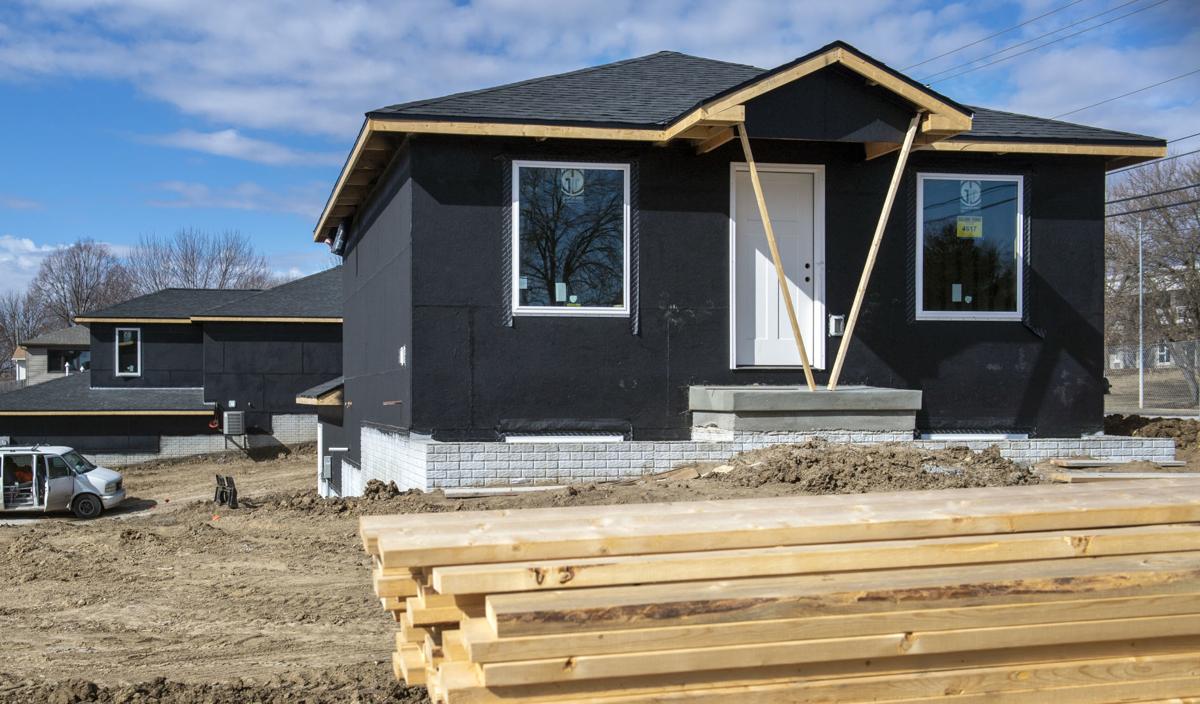Lincoln will need to build as many housing units as exist in all of Grand Island by 2030 to support population growth expected here.
And though living in Lincoln remains affordable compared to other cities, housing costs continue to rise, and the rent and mortgage burden many residents feel needs attention to stave off more systemic housing problems.
Those bullet points are driving a number of recommendations and proposed new partnerships aimed at addressing housing affordability, particularly for low- and moderate-income residents.
The Affordable Housing Action Plan released Friday “outlines key strategies and partnerships to protect and enhance the health, safety, economic opportunity and quality of life of every resident,” Mayor Leirion Gaylor Baird said in a news release.
The array of strategies to take on Lincoln’s housing challenges includes rehabbing existing housing, rethinking building codes and getting some Lincoln residents to right-size or downsize where they live by increasing the attractiveness of other options.
“This is not about what the city alone is going to have to do,” said Amy Haase of RDG Planning and Design, the city consultant developing the plan.
Rather, developing new housing and improving the quality of the existing housing stock will require new approaches that make the ventures less risky to undertake, the report said.
Housing construction has been consistent in Lincoln, but often the type of housing offers little variety outside of single-family homes, condos and apartment complexes, which often have high price points.
More variety, specifically housing geared toward seniors, empty-nesters and young professionals, could address housing affordability by freeing up homes for renters who can afford them but are stuck in cheaper apartments because they can’t find a home in their price range.
Legal mechanisms can also help bring down the price of housing.
A legislative effort to permit a land bank — where a city can acquire vacant property for renovation — is pending this session.
Already, the South of Downtown Community Development Organization has formed Lincoln’s first nonprofit community land trust and acquired two dilapidated properties to redevelop into affordable housing, the report said.
In the private sector, larger employers could help join the solution by offering housing programs for workers.
The report highlighted programs at Saint Louis University, which offers a forgivable loan to staff who buy in targeted areas of St. Louis, Missouri, and the Schuyler Community School District, which provides an annual rent or mortgage subsidy or offers $10,000 toward the down payment on a house in the district.
A consortium could be formed to assist homebuyers who have lower incomes or who are looking to buy in targeted neighborhoods through down-payment assistance, forgivable home improvement loans and other incentives seen in cities such as Des Moines, Iowa, and Omaha.
And the city could use its tax-increment financing authority to push for more affordable housing unit construction, the report said.
Among the pressing needs in Lincoln is providing more housing for residents with incomes lower than $25,000, the report found.
Over the next 10 years, Lincoln needs 2,200 additional rental units priced below $500 a month and another 2,800 priced between $500 and $1,000, the report projected.
Vacant but irregular lots could be targeted for affordable housing projects, if the city eases zoning requirements on lot setbacks or parking spaces.
Much of the city’s affordable housing exists in Lincoln’s oldest neighborhoods, but those neighborhoods also have the highest concentration of housing complaints, according to the report.
Lincoln could offer rehab programs to help spur landlords whose properties have affordable rents but need renovation to make the investment without needing to raise rents, the report said.
Median rent in Lincoln stands at $822 a month, about $200 more than 20 years ago, according to the report.
The 91-page plan doesn’t recommend that the city implement rent-control policy but proposes a variety of financial incentives for new development or rental rehab work that requires the developer or landlord designate some units for affordable housing.
Cities such as Denver; Austin, Texas; and San Francisco have higher rent burdens than Lincoln, but the city needs to take steps to prevent bigger housing problems down the line, Urban Development Director Dan Marvin said.
“If you wait too long, the cow’s out of the barn, and there’s no way to contain this,” Marvin said.
Omaha consulting firm RDG received $61,000 to develop the plan, which will be the subject of public hearings in March.
Original article: https://journalstar.com/news/local/govt-and-politics/city-of-lincoln-can-t-go-it-alone-in-tackling/article_227727b8-8f02-55d8-abd8-cba14186aa7e.html

